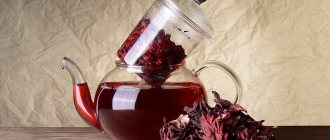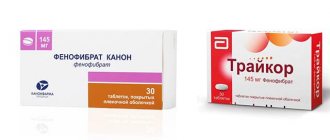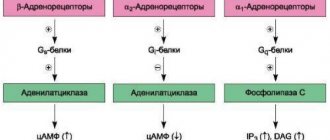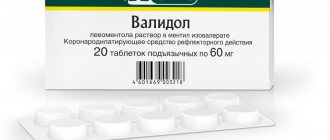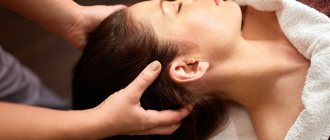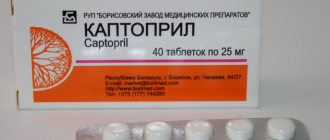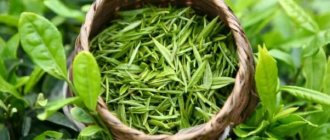Black tea is a drink that has long been loved by most people. Many people start their morning with it, drink tea throughout the day and before bed, adding dried fruits, berry leaves and other ingredients to the drink to improve its taste. But few people know how black tea affects blood pressure, and whether people with a tendency to hypertension can drink it without fear. In order not to give up black tea altogether, having heard plenty of beliefs about its dangers for people with high blood pressure (BP), you need to know about the beneficial properties of the drink, how to brew it and consume it.
Tea composition
The beneficial properties of the tea drink and the beneficial effects on the human body have been known for a long time. Tea contains a complex combination of substances, and the total number of chemical compounds included is about 300.
Groups of substances contained in tea drink:
- tannins that give tea a strong, tart taste, in particular tannin;
- essential oils that give the drink a pronounced aroma and affect the taste;
- theine (tea caffeine), which belongs to the group of alkaloids - thanks to this substance, a positive effect on the nervous system is achieved;
- proteins and amino acid compounds that affect the body's metabolic processes;
- biological pigments, thanks to which the tea drink has a pleasant color;
- vitamins, organic acids, pectins;
- minerals - phosphorus, fluorine, potassium and others.
Whether tea increases or decreases blood pressure depends not only on the amount of drink consumed, but also on the type of plant and the method of its preparation - what is the ratio of certain substances present initially and preserved or lost during the brewing process.
What is good for hypertensive patients?
To maintain normal blood pressure, a person should be in the fresh air quite often, do exercises in the morning, and eat raw vegetables and fruits. Walking and light jogging will also help.
It is useful to drink decoctions and infusions of plants: rose hips, chamomile, chokeberry, hawthorn, viburnum. Fresh greens, vegetables and fruits must be present in the diet.
The room must be constantly ventilated so that there is an influx of fresh air.
Healthy food
Products that are useful to include in your diet:
- Walnuts, spinach, garlic, cereals (buckwheat, oatmeal, wheat);
- Cod and sea bass are very useful fish;
- Any plant food (vegetables, berries, fruits);
- You are allowed to eat only lean meat: chicken, veal, turkey. You need to cook it without oil, and instead of salt it is better to add a little lemon juice and herbs (dill, parsley).
You can add vegetable oil, but it is better to give preference to olive oil.
Split meals 4-6 times a day in small portions are encouraged.
You can’t overeat before going to bed, but you can eat some vegetables, fruits, or drink a glass of kefir.
Best prevention methods
The best way to avoid serious complications that arise from hypertension is to prevent the disease itself.
Prevention should include a healthy and proper diet, giving up alcohol and smoking, controlling your emotional state and stress management. You also need to engage in moderate physical activity (swimming, running, cycling, aerobics).
Avoid excess weight, drink enough water (1.5 - 2 liters per day), do not indulge in salty, fried foods, and once a week you can have a fasting day.LOADING
Thus, to prevent the disease from developing, you must first adjust your lifestyle and diet.
Doctors advise going to bed on time and giving up bad habits. If you don’t take care of your health on time, you will have to take medications for life, undergo examinations and constantly monitor your blood pressure so that a stroke or heart attack does not occur. ADVERTISING Facebook
Benefits of the drink for the body
Moderate consumption of tea drink promotes beneficial effects on various human organs and systems:
- Gastrointestinal tract – tea has a positive effect on digestion, destroys bacteria, helps with stomach and intestinal disorders, helps remove harmful substances, and helps ease the digestion of heavy foods.
- Cardiovascular system - the combination of tannin and caffeine normalizes the functioning of the heart muscle, dilates blood vessels, eliminates spasms and stabilizes blood pressure. This effect is achieved due to the vitamin P content in tea, which strengthens vascular walls and increases their elasticity. Iron salts in the drink increase blood circulation, prevent the formation of blood clots and reduce cholesterol levels in the blood.
- Respiratory organs - while drinking strong black tea, the volume of air that enters the lungs increases, if you compare these indicators with the normal state. Tea is considered a diaphoretic, immunostimulating and strengthening agent.
- Urinary system – theobromine and caffeine contained in tea leaves promote enhanced kidney function, prevent the formation of sand and stones, and cleanse the kidneys and liver of the accumulation of harmful substances.
- Metabolism – the substances contained in tea reduce salt content and help cure obesity.
The opinion that black tea increases blood pressure is formed due to the sensations received during the tea ceremony and immediately after it
Thanks to the content of alkaloids (tannin, theobromine and caffeine), excess stimulation of the nervous system is relieved, blood vessels dilate and spasm is relieved, and blood supply to the brain improves. As a result, after drinking a glass of tea, a person feels cheerful and rested, which many attribute to an increase in blood pressure.
The prejudice that strong tea increases blood pressure has scientific basis when a person with signs of hypertension drinks the drink in unlimited quantities and brews the drink in too strong a concentration. However, the usual dose of the drink contains several times less caffeine than coffee, therefore it has a gentle effect on the heart and blood vessels, does not accumulate in the body and is quickly eliminated, without harming hypertensive patients or posing a danger to their health.
Top best teas to normalize blood pressure
Health problems associated with high or low blood pressure (BP) are a common phenomenon of modern life. Moreover, these diseases today affect not only older people, but also many representatives of the younger generation. This is due to frequent stress at work, domestic troubles, bad habits, poor environment and other negative factors.
Even by a person’s appearance one can guess the nature of the illness that is plaguing him. A red, swollen face, nosebleeds, sweating, and irritability indicate hypertension (high blood pressure). Pale skin, lethargy, apathy, depression, indifference to everything around you are signs of hypotension (low blood pressure). Of course, you can normalize blood pressure with the help of medications, but people with such problems also need to monitor their diet and the fluid they consume. This article will discuss the effect of tea, one of the most popular drinks all over the world, on blood pressure levels.
Black tea
There is an opinion about this drink, beloved by all residents of our country, that it increases blood pressure. This prejudiced attitude has been strengthened in people's minds since Soviet times. At that time, Georgian, Indian or Ceylon tea of very low quality could be purchased in stores. Therefore, in an effort to achieve at least some aroma, more tea leaves were put into the teapot. The result was a drink stronger than usual, which could actually lead to an increase in blood pressure. In addition, every Russian is well acquainted with the term “chifir”. After consuming this highly concentrated brewed tea, mainly common in places of detention, blood pressure not only increases, but exceeds all permissible standards.
Why is this happening?
An increase in blood pressure occurs due to the fact that the blood vessels narrow and the pressure of the blood flow on their walls increases. The heart has to pump blood more intensely. In hypertension, the vessels generally appear as thin tubes due to depletion and loss of elasticity of their walls. Therefore, the main medications for hypertensive patients are vasodilators. In turn, a decrease in blood pressure is caused by the fact that the blood vessels are in a dilated state, which is why the rate of blood circulation in the body slows down. With hypotension, this situation becomes permanent, which leads to disruption of oxygen supply to the heart and brain.
Substances in black tea that affect blood pressure
Black tea contains a large number of different chemical elements that have a direct effect on the tone of blood vessels. Among them, compounds such as tannins, catechins (tannic acids of the phenolic group) and theine (tea caffeine) should be highlighted. They have the ability to reduce the lumen of the vascular walls, which causes an increase in heart rate and, as a result, an increase in blood pressure. The concentration of these substances in tea leaves is quite significant, which is why after drinking a cup of strong black tea, a vasoconstrictor effect occurs and the pressure is maintained at an elevated level for some time. Nevertheless, this drink is enjoyed by everyone: both hypertensive and hypotensive patients.
So who is black tea more beneficial for - people with high or low blood pressure?
There is no clear answer to this question. Two or three cups of a weak drink a day with the addition of a slice of lemon will not only not harm hypertension, but will also calm you down, lift your spirits, and relieve fatigue. But hypotensive people should slightly increase the usual consumption rate of black tea when brewing. To normalize low blood pressure, it is recommended to drink a drink with the addition of a few drops of cognac. A small amount of high-quality alcohol will not have a negative effect on health, and in combination with tea biologically active components it will only invigorate, increase the tone of the body, and eliminate depression.
Green tea
Due to established traditions, this drink is less popular among Russians. If we talk about its effect on blood pressure, then the situation is more complicated. First of all, it should be noted that compared to black tea, it contains a higher caffeine content. Of course, it is much less than in such a tonic drink as coffee. However, this alkaloid still has a specific effect on the condition of blood vessels. The caffeine (theine) of green tea not only causes vasoconstriction and an increase in the frequency of contraction of the heart muscle, but also activates the release of hormones that excite the central nervous system - adrenaline and cortisol. All this leads to increased blood pressure. However, this tonic effect does not last long. After a short time, the effect of caffeine is neutralized by purine compounds, which are its antagonists - xanthine, theobromine, theophylline, etc. As a result, vascular tone returns to normal and blood pressure decreases.
The second important point: there are several hundred varieties of green tea. Each of them has its own unique effect on the body. Some contain only 2% caffeine, others as much as 5%, some have more tannin and catechins, some have less. Therefore, if we consider the consumption of this drink from the point of view of its effect on blood pressure, then it is best to opt for varieties grown and fermented in China. It is no secret that Chinese green teas are considered the most refined and elite in the whole world.
Varieties of green tea used for high blood pressure
For people suffering from high blood pressure, it is recommended to drink teas that have a relaxing and calming effect. Among the many such drinks, the following premium varieties should be highlighted:
- "Feng Yan" ("Eye of the Phoenix");
- “Moli Yu Long Tao” (“Jasmine Dragon Peach”);
- "Hua Long Zhu" (Jasmine Dragon Pearl).
You should also pay attention to green teas from the oolong category:
- "Tie Guan Yin";
- “Nai Xiang Jin Xuan” (“Golden Daylily”);
- "Da Hong Pao" ("Big Red Robe").
All these varieties have the ability to cleanse blood vessels of cholesterol deposits, increasing the lumen and improving the elasticity of their walls. They contain a number of natural substances with complex names that stimulate brain structures responsible for relaxation. These drinks have a mild diuretic effect, which is very important for hypertensive patients who, together with antihypertensive drugs, are forced to take diuretics. Green teas have a calming effect, relieve nervous tension and fatigue, improve concentration, eliminate headaches, normalize sleep and, accordingly, lower blood pressure.
Green tea for low blood pressure
For hypotension, it is better to give preference to green teas with a high content of caffeine (theine) and phenolic compounds (tannin, catechins). These varieties include:
- “Shen-Puer” and “Shu-Puer” (teas from Yunnan province);
- “Longjing” (“Dragon Well”);
- "Kudin" (a drink made from the leaves of the holly tree).
These varieties contain a large amount of tannins and various aromatic compounds that have a tonic effect on the body, as well as antioxidants that fight free radicals, which helps maintain blood vessels in good shape. Invigorating green teas have mild stimulating properties, activate vital processes, saturate the brain with oxygen, clear consciousness, eliminate depression and slightly increase blood pressure, which is what hypotensive people need.
Hibiscus
Tea made from Sudanese rose (hibiscus) petals of a beautiful bright red color is considered an exotic drink for most residents of our country. However, there are also many lovers of the “drink of the pharaohs”. From someone's hand, there is information circulating in print and Internet publications that hot hibiscus increases blood pressure, and cold tea, on the contrary, lowers blood pressure. Biochemical studies have shown that this is an erroneous judgment. Firstly, regardless of the temperature, the drink quickly becomes warm after entering the stomach and is absorbed by the body in this form. Secondly, when discussing the effect of any tea on blood pressure, one should rely on the biologically active substances it contains.
The hibiscus plant contains a large number of different natural compounds that have a beneficial effect on the vascular system. Among the many useful components, flavonoids (anthocyanins), amino acids (as many as 13 items), pectin, potassium ions, vitamins C (ascorbic acid) and P (rutin) predominate. Due to the presence of these substances, the body has a hypotensive effect: blood vessels dilate, the elasticity of their walls improves, blood circulation is stimulated, blood pressure increases and the cardiovascular system is generally strengthened. In addition, this drink has a diuretic effect, reducing sodium levels in the blood. Therefore, according to herbalists and even cardiologists, hibiscus tea is more suitable for people suffering from high blood pressure.
Herbal teas for hypertensive patients
Someone might argue that any brewed drinks based on medicinal herbs are not tea, but infusions. But if we put aside quibbles, it is obvious that the principle of their preparation is identical to traditional tea: when brewing, all these drinks are accompanied by an infusion process.
For hypertension, it is recommended to drink herbal teas, which have a relaxing, sedative effect. The beneficial components that make up the plants must perform the following functions: dilate blood vessels, thin the blood, activate blood circulation, strengthen vascular walls, remove excess fluid from the body, improve the contractility of the heart muscle.
Herbs that lower blood pressure must contain tannins, coumarins, tannins, organic acids, vitamins C, E, P, polyphenols, flavonoids, potassium, and magnesium in sufficient quantities.
First of all, all these requirements are met by drinks brewed with fireweed (willowherb), hawthorn, and lingonberry leaves. It is also very useful for hypertensive patients to drink drinks made from soothing herbal infusions. Plant combinations can be very different, for example:
Option 1: fennel, valerian, mint, chamomile, cumin.
Option 2: hawthorn, hop leaves, motherwort, dried grass.
City residents who do not have the opportunity to collect and prepare medicinal plants can purchase ready-made tea preparations from pharmacies. The most popular among hypertensive patients are the following pharmaceutical herbal teas:
- “Hypotensive herbs” - (hawthorn, mint, black currant, lemon balm, chokeberry);
- “Monastic tea” - (motherwort, oregano, plantain, sweet clover, immortelle, coltsfoot, etc.);
- “Taiga Doctor” - (valerian, panzeria, sweet clover, Kuril tea, horsetail, etc.).
Herbal teas for hypotension
According to statistics, there are significantly fewer people suffering from low blood pressure than hypertensive people. However, hypotensive people also experience serious health problems: asthenia, loss of strength, chronic fatigue syndrome, decreased performance. Hypotension is characterized by a condition in which the tonometer records the blood pressure level within 100/60 mm Hg. and below. The main objectives in the treatment of this disease are: to invigorate a person, increase the tone of blood vessels, enhance cardiac activity, stimulate brain function, restore strength and muscle activity. In this case, drinks that help increase blood pressure can provide significant assistance.
As already noted, the most effective natural tonic is caffeine, present in coffee, strong green or black tea. Drinks based on caffeine-containing plants bring no less benefit to hypotensive people. For example, Paraguayan mate tea or South American tea infused with the leaves or berries of the guarana plant (“Amazon chestnut”).
However, such drinks are unusual and difficult to access for Russians, so it is better to opt for medicinal herbs that grow throughout the vast territory of our country. In particular, reliable natural remedies that stimulate and tonify the body (adaptogens) are:
- Rhodiola rosea (“golden root”);
- Leuzea safflower;
- Schisandra chinensis;
- Eleutherococcus ("Siberian ginseng").
They are famous not for the presence of caffeine, but for their effective vasoconstrictor effect, so necessary for hypotensive patients. These plants are rich in glycosides, alkaloids, essential oils, and triterpene compounds that increase the tone of blood vessels.
Today in the pharmacy chain you can purchase not only alcoholic tinctures and extracts from these plants, but also medicinal teas, which are produced in the form of packaged bags. This is very convenient, since the dose of raw materials used has already been calculated by specialists. Also, in the fight against hypotension, you can achieve a positive effect with the help of herbal tea mixtures.
Pharmacy collection No. 140
Thus, many therapists recommend that hypotensive patients purchase pharmaceutical collection No. 140. It contains: St. John's wort, viburnum, sea buckthorn, elecampane, nettle, tartar, hazel, strawberry, oregano, birch leaves.
Pharmacy collection "Hypotension"
Another popular pharmacy collection is made on the basis of medicinal plants of Altai. It’s called “Hypotonia”. Its composition is diverse: rhodiola rosea, calendula, eleutherococcus, rose hips, leuzea, St. John's wort, tartar, lemon balm, nettle, oregano, elecampane.
To summarize all of the above, the following should be noted: any tea, when brewed correctly, is a natural and safe drink. Some teas lower blood pressure, others increase it, and others have a double effect. At the same time, much depends on the individual characteristics of each organism, so the benefits of this or that tea for hypertension or hypotension can only be assessed through personal experience.
How to check whether a drink affects blood pressure monitor readings
To find out whether tea increases blood pressure, whether the drink can be enjoyed without fear and in what quantities to drink it, each person with signs of hypertension should conduct a simple experiment:
- have lunch and record the tonometer readings after 30 minutes;
- drink a cup of black tea without adding milk, sugar or honey;
- After a quarter of an hour, measure your blood pressure again and evaluate the result.
If after drinking a tea drink your blood pressure turns out to be elevated, you can draw conclusions about its effect on the body. An increase of 5–10 mmHg indicates a normal reaction to black tea; it can be consumed without restrictions. If the pressure has jumped by more than 20 mmHg, you can drink tea without abuse or completely limit the amount of drink you drink per day.
Herbal
The main advantage of herbal decoctions and teas is that you can drink them with high blood pressure, especially if such therapy for severe symptoms of hypertension is combined with taking medications (prescribed by a doctor). Some herbs cause allergic reactions, so before using them you should make sure there are no signs of sensitization.
Unlike chemical drugs, herbs act slowly, but are much gentler and safer. For a sustained decrease in blood pressure, it is necessary to complete the entire course of treatment, at least 2–3 months. After the expiration of the period, one can note a decrease in blood pressure by 5–10 units, which is already considered a considerable achievement for people with high blood pressure. Headaches are eliminated, sleep improves, and blood vessels are strengthened.
No ads 2
Here is a list of the most useful ways to brew herbal tea that has a positive effect on blood pressure:
- Tea with bergamot. This citrus is not consumed in its pure form, but its extract is actively used in the preparation of tea drinks that have soothing, antiseptic, and tonic properties. Bergamot-based tea also stabilizes blood pressure, strengthens vascular walls, improves immunity and fights stress. For hypertension, you should brew bergamot tea for 2-3 minutes and drink it chilled, without adding sugar or honey to the drink.
- Tea with motherwort. This plant is known for its calming properties. Since all hypertensive patients experience increased nervous excitability, headaches and sleep problems, they will benefit from this tea - mix dill and caraway seeds, motherwort and valerian root, 1 tbsp. l. Brew 250 ml of boiling water and leave for half an hour. Take tea three times a day, ½ cup.
- Altai herbal collection. The tea contains herbs horsetail, yarrow, chaga birch extract, as well as rose hips, hawthorn, viburnum and other components. The drink helps supply the heart and blood vessels with useful elements, normalize the functioning of the nervous system, improve sleep, increase capillary tone and, as a result, reduce blood pressure. Altai tea should be brewed and drunk for at least a month to feel the desired effect.
Teas based on hawthorn, hop cones, mint, lavender, and mistletoe leaves also have a good stabilizing effect. Before using them to treat hypertension, you should consult with your doctor and make sure you are not allergic to the components of the tea.
Individual reaction of the body
Whether tea lowers blood pressure or helps to increase it depends on the individual characteristics of the human body. The capillaries of the circulatory system are stuffed with a huge number of receptors that react to the entry into the blood of substances contained in tea - caffeine and catechin. If the vessels react strongly to the intake of caffeine, the pressure rises, and with an individual reaction to catechin, blood pressure indicators, on the contrary, decrease.
The effect of black tea on the human body occurs in two stages:
- When tea enters the stomach and the first portions of the drink’s components (theobromine, tannin, caffeine) enter the bloodstream, the effect of stimulating the central nervous system is manifested due to vasodilation, increased heart rate and a slight increase in blood pressure.
- After the initial stimulating effect on the body passes, blood pressure levels stabilize, and the blood pressure monitor remains unchanged for several hours after consuming the drink. This stabilizing effect is observed due to the content of vitamins, tannins and minerals in tea.
The fact that tea raises blood pressure for 5–10 minutes immediately after drinking the drink is dangerous not so much for hypertensive patients as for people with unstable blood pressure. Such conclusions were made during tests of the effects of a tea drink on patients whose blood pressure levels constantly fluctuate. If capillaries react faster and more pronounced to catechin than to caffeine, you can use a tea drink to regularly stabilize blood pressure. The patient can receive other recommendations from the attending physician.
Considering this individual reaction of the human body to tea, we can conclude that it is not contraindicated for all patients with hypertension
Hibiscus
This variety of leaves, which is also popularly called red tea, is even more beneficial for hypertensive patients compared to green tea. The pronounced red color of the drink is given by anthocyanin, a substance that, in combination with ascorbic acid (vitamin C), amino acids, beneficial microelements, and flavonoids, strengthens vascular walls and makes capillaries elastic and unbreakable.
As a result of this effect, blood pressure levels decrease, headaches go away, the nervous system is strengthened, and sleep is normalized.
List of beneficial properties of hibiscus tea:
- increased vascular tone;
- preventing the formation of plaques in the capillary cavity, reducing cholesterol levels in the blood;
- improving blood supply to internal organs;
- cleansing the body of toxins, removing free radicals;
- providing a bactericidal and antiseptic effect.
A pronounced effect from drinking the drink should not be expected if a person drinks it occasionally, does not follow a diet and has bad habits. In parallel with taking tea, hypertensive patients need to adhere to proper nutrition (limit the amount of salt, carbohydrate and fatty foods), lead an active lifestyle and do not forget about the medications prescribed by the doctor.
To get rid of the signs of hypertension, you need to drink hibiscus tea daily, 2-3 cups a day.
How to brew black tea correctly
In order for black tea to show all its unique properties at full strength, it is important to brew it correctly.
- Wash the teapot thoroughly and rinse it with boiling water.
- Pour tea leaves into the kettle at the rate of a teaspoon for every 200 ml of water, plus another teaspoon per kettle.
- Pour freshly boiled and slightly cooled water into the kettle with dry tea leaves (temperature should be 90-95 °C).
- Infuse black tea for no more than 4-5 minutes, then immediately pour into cups.
There are some features that should be taken into account when brewing black tea:
- with hard water, you should take a little more tea leaves, and with soft water, less;
- cut and small-leaf varieties of tea have a more pronounced color, taste and aroma, so they should be taken less than large-leaf ones;
- If the tea will be consumed immediately after a meal, the brewing rate should be slightly increased, since in this case the sensitivity of the taste buds of the tongue is dulled.
Possible contraindications
Not everyone thinks about whether black tea can have a negative effect on the body. After all, this aromatic infusion has already become a part of modern life. However, this drink has several contraindications for use:
- For emotionally unstable people prone to neuroses and increased excitability, drinking a strong decoction of these leaves is contraindicated. If you do not stop drinking tea, pathologies of the nervous system will worsen and insomnia will appear. People with an unstable emotional background can drink no more than 1 cup of weak brew per day;
- strong tea aggravates the clinical picture of diseases such as glaucoma, as well as other pathologies associated with increased intraocular pressure;
- Using strong tea leaves helps remove magnesium from the body. And the lack of this element negatively affects the condition of the cardiovascular system.
Tea is an excellent alternative to coffee, which is contraindicated for hypertensive patients. With proper use of the drink, you can normalize blood pressure, increase performance, and even eliminate headaches without taking pills.
Why is black rather than green tea recommended for hypotensive patients?
Cardiologists recommend that people with hypotension drink 3-4 cups of black tea per day. This is due to the property of the drink to increase blood pressure, eliminate headaches, and tone the blood vessels and body systems. Cardiologists find it difficult to answer whether black tea can quickly raise blood pressure. However, due to its beneficial effects on the body, the drink is recommended for hypotensive patients to consume in moderation:
- due to the presence of catechin, the infusion has a beneficial effect on the condition of blood vessels, strengthening their walls;
- increases immunity, promotes rejuvenation of the body;
- tannin increases the body's ability to resist infections;
- fluoride strengthens tooth enamel;
- promotes vasodilation;
Tea helps dilate blood vessels
- normalizes metabolism;
- thanks to caffeine, it improves performance and tones.
A hot, strong drink without sugar increases blood pressure. The effect lasts 3–4 hours. With regular consumption of tea from good quality brewing, blood pressure levels are normalized, headaches and drowsiness cease to bother you.
But excessive consumption of the drink is harmful for hypotensive patients:
- digestive disorders (constipation) appear;
- eye pressure increases;
- sometimes there is insomnia and anxiety.
A sweet drink will not be beneficial for hypotensive people. Sugar destroys B vitamins, which have a beneficial effect on the cardiovascular system and reduce the effect of caffeine.
At low pressure
If you have hypotension, there is no need to limit your tea intake. It is best to brew a drink consisting of the top leaves and buds. It has the highest content of caffeine and taurine. Do not drink bagged teas, as during their processing all beneficial substances are lost.
Hypotensive patients are also advised to drink tea with sugar. As we said above, such a drink has a stronger effect on blood pressure, increasing it for a longer time.
And also read on our website: What tea lowers blood pressure and which is better to drink for hypertension?
A very good remedy for low blood pressure can be tea with the addition of rose hips, St. John's wort, rosea radiola, and yarrow. Mix black tea leaves with a tablespoon of any of the above ingredients and pour boiling water over it, let it brew for 30 minutes. Enjoy your tea!


